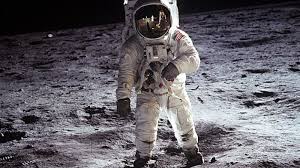Astronauts living inside the space station in space have their own challenges. Special arrangements are required for eating, drinking and passing urine. Similarly, toilet facility is a big challenge for passengers living in the space station. Till now astronauts have been using special type of diapers to pass urine in space which NASA provides them. But now scientists have invented a new device which will convert urine into drinking water!
According to the report of New Scientist, researchers in New York have designed a device weighing 8 kg which can be fitted in the space suit. It will have an osmosis filter with the help of which it will convert urine into drinking water. Scientists of Cornell University have told about this new device in a journal called Frontiers in Space Technology.

The research team noted that the currently used diaper system can be a solution to this problem for some time. But if the astronauts’ activity during space walk lasts for a long time, then the solution for this will also need to be long term.
NASA currently provides maximum absorbency garment to astronauts to pass urine. It is actually an adult diaper in which urine and feces are collected. At the end of the space walk, these are left in the waste system of the space station, after which they are burnt in space there itself.
Under the new system, scientists have invented a device which is light in weight. It separates water from the urine and purifies it. This process is completed in just 5 minutes. It will also have a humidity sensor which will automatically detect the urine.
As soon as urine is detected, a vacuum pump starts in it which pulls the urine into the filtering device. It cleans and purifies the urine by removing water from it, then sends it to the drinking bag attached to the space suit. Although the system is still in its initial stages, it has been tested working effectively in the lab.




